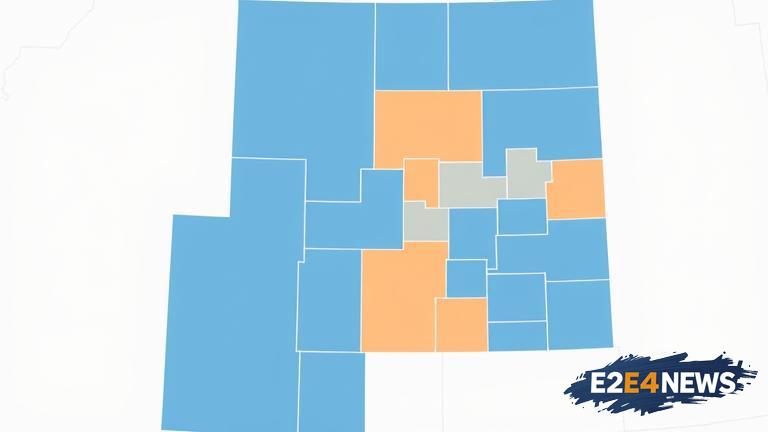A significant development has taken place in Utah’s political landscape, as a federal court has ruled that the state’s congressional map must be redrawn. This decision comes after a lengthy legal battle, with the court citing partisan gerrymandering and unequal representation as the primary reasons for the redraw. The current map, which was drawn in 2021, has been deemed unconstitutional, and the state has been given a deadline to submit a new map. The ruling has sent shockwaves throughout the state, with many politicians and citizens weighing in on the decision. The court’s ruling is a major victory for Democrats, who have long argued that the current map is unfairly biased towards Republicans. The new map is expected to have a significant impact on the state’s political landscape, potentially leading to more competitive elections and a shift in the balance of power. The Utah Legislature will be responsible for drawing the new map, although it is likely that the process will be contentious and highly partisan. The court’s decision has also sparked a wider debate about the role of gerrymandering in American politics, with many arguing that it is a major contributor to the country’s political polarization. The ruling is also seen as a significant test of the Supreme Court’s willingness to address partisan gerrymandering, with many eyes fixed on the high court’s upcoming decisions. In Utah, the redrawn map will likely have a major impact on the state’s four congressional districts, potentially leading to changes in the representation of various communities and interests. The state’s growing population and shifting demographics will also play a significant role in the redrawing of the map. As the process moves forward, it is likely that there will be intense lobbying and negotiation between different interest groups and politicians. The court’s decision has also raised questions about the potential impact on the state’s upcoming elections, with some arguing that the new map could lead to more competitive races and a greater diversity of representation. However, others have expressed concerns that the process could be delayed or derailed by partisan infighting. The Utah Governor has stated that the state will comply with the court’s ruling, although it is unclear what the final map will look like. The state’s Democratic Party has welcomed the decision, arguing that it is a major step forward for fairness and representation in Utah politics. In contrast, the state’s Republican Party has expressed disappointment and frustration with the ruling, arguing that it is an overreach of judicial authority. As the process moves forward, it is likely that there will be significant media attention and public interest in the redrawing of the map. The court’s decision is also seen as a significant development in the wider context of American politics, with many arguing that it has major implications for the future of democracy and representation in the United States. The ruling has sparked a wider debate about the need for electoral reform and the importance of fair representation in American politics. In conclusion, the federal court’s decision to order Utah to redraw its congressional map is a significant development that will have major implications for the state’s political landscape. The process of redrawing the map will be contentious and highly partisan, but it is also seen as a major opportunity for reform and a more fair and representative democracy.
